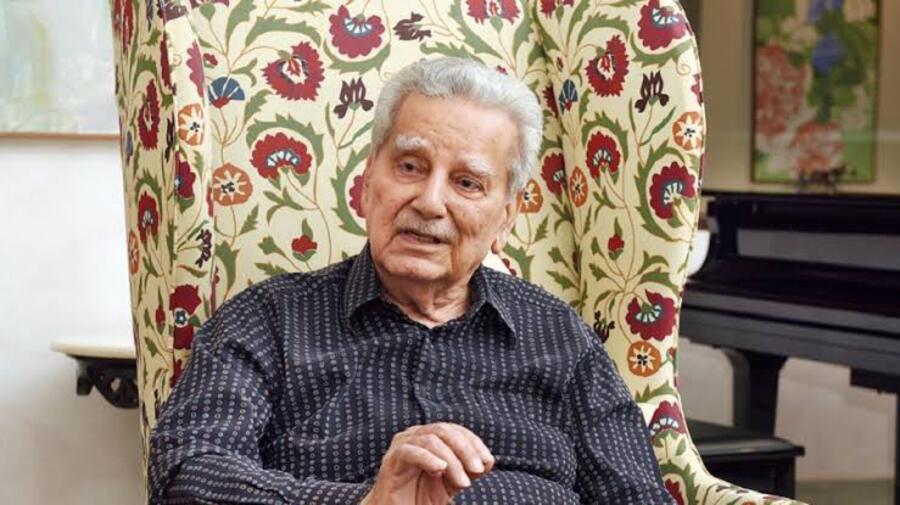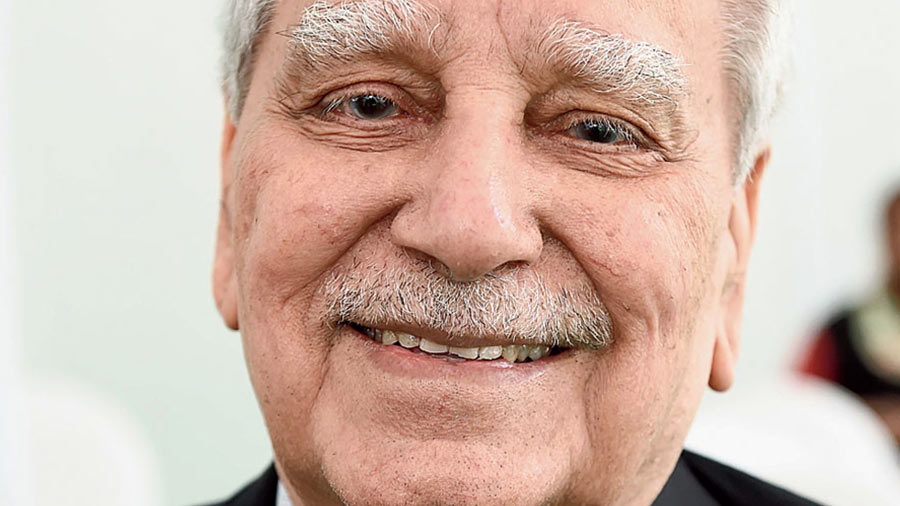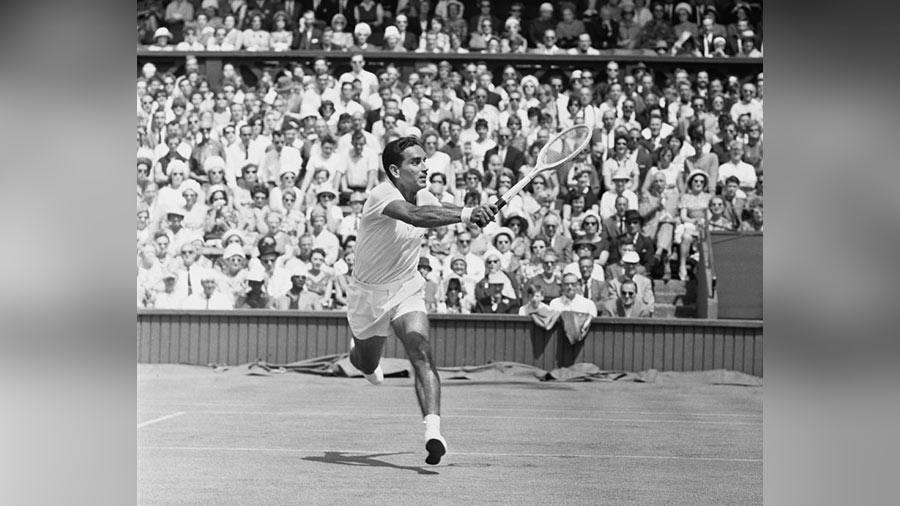Naresh belonged to a generation that is fast disappearing from Calcutta. Naresh emphatically belonged to Calcutta and not Kolkata. Naresh was also that special kind of gentleman who brought an ineffable charm and grace to the city.
There were at least two facets to Naresh’s persona. One was that of a tennis player who had played innumerable times at Wimbledon, had represented India in the Davis Cup, had coached and managed Indian teams and players. He was also the voice of tennis in India because he, over many years, gave the running commentary on tennis matches over the radio. For many sports lovers of my generation, Naresh Kumar was a well-known name and voice even before we knew what he looked like. Others more knowledgeable than I are better placed to write more elaborately on Naresh Kumar as a figure in the world of tennis.
I can only write with a modicum of confidence on the other facet of Naresh’s life — Naresh as the gentleman who I knew well for some years. I got to know Naresh when his playing days were a thing of the past. I don’t think I ever saw him on the courts of his beloved South Club or anywhere else. We had met socially and fleetingly but such meetings acquired a completely different dimension when, in an inspired moment, I invited him to write for the op ed page of The Telegraph. He was already an occasional contributor to the sports pages of The Telegraph thanks to the initiative of my colleague L.P. Sahi. I approached Naresh with a different brief. I requested him to take up broader themes and not confine himself, as he was doing on the sports pages, to tennis matches that were being played. I told him that for the op ed page, he could let his mind wander — write about personalities, memories, the broader aspects of tennis and sports in general and so on.
Naresh was flattered; he was also diffident. "Rudrangshu,’’ he said, "I am not a writer and certainly not an intellectual. How can I contribute to the op ed page?’’ I reassured him as best as I could and he agreed but Naresh being Naresh he took from me a promise. He said, "Give me your word that if ever you find a piece of mine not worthy of publication, you will tell me and not print it.’’ I assured him that The Telegraph edit pages wouldn’t compromise on quality even for Naresh Kumar! Thus began a series of articles from the pen of Naresh Kumar. He turned out to be an extraordinarily good writer with nice turns of phrase and a lovely, often self-deprecating, sense of humour.
The day Russi Mody died, I called him. He picked up the call immediately even though, as he told me, he was in Russi’s house overseeing the funeral arrangements. He said, "I was going to call you later. I want to write my tribute to Russi. Will you publish it?’’ I replied, "Why do you think I am calling knowing full well that you must be in mourning?’’ By that evening Naresh had sent me his tribute to Russi Mody. I believe that it was the best piece to have been written on Russi Mody.
Through my interactions with Naresh the writer, I got to know Naresh, the gentleman — kind to a fault, infectiously warm-hearted and fun to be with. I had the privilege of spending many evenings with him and Sunita. He had anecdotes galore, about old-world Calcutta, about the South Club and of course Wimbledon. These addas were always followed, thanks to Sunita’s unmatched hospitality and table, by sumptuous dinners. I always left the Kumar residence replete with food and conversation.
It was an honour to know Naresh Kumar. On the afternoon of his death I informed a common friend about Naresh’s passing. This man wrote back with the following words, "A good man leaves this bad world.’’ Nothing could be more apt.
Good night, Naresh Kumar. May angels take you to your rest.
Dr Rudrangshu Mukherjee is the Chancellor of Ashoka University


